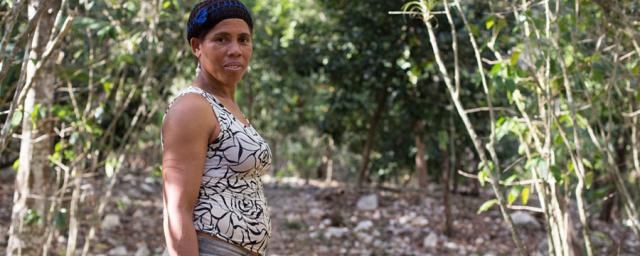
Climate change is one of the principal threats to food justice, traditional means of subsistence and ways of life. The impacts of climate change in Latin America are becoming increasingly worrisome, particularly the impacts on the agricultural and forestry sectors, given their dependence on weather conditions. This creates a regional situation that is economically, socially, environmentally, and politically vulnerable, putting food security, human security, and the basic conditions necessary for poverty reduction at risk. Virtually every country within the region has suffered the consequences of extreme weather events over the past few years.
Analysis of the region’s vulnerability to climate change shows that periods of droughts and flooding are intensifying, and that natural disasters are and will be not only more extreme but also more recurrent. The loss of glacier area is reducing the availability of water for human consumption, agricultural and livestock use, and power generation. Soil continues to steadily erode and degrade.
Indigenous women and rural women play a very important role in addressing climate change, specifically in efforts to ensure food security in their households and their countries, as well in climate change adaptation efforts. The impacts of climate change affect everyone in a different way but nevertheless gender discrimination makes women especially vulnerable to these negative effects. This is especially true in the case of indigenous women and rural women, whose conditions of life and marginalization put them at greater risk.
In Latin American 58 million women live in rural areas. However, only 30% of rural women own agricultural land and less than 5% have access to technical assistance. Improved, gender-focused public policies for climate change adaptation will without a doubt help to reduce the gaps that intensify the vulnerability of rural women.
The photos below, from different countries in Latin America and the Caribbean, document the impacts of climate change on the region’s rural women, and the ways in which these women have sought to adapt.
Brazil: Maria Nazareth in conflict over land
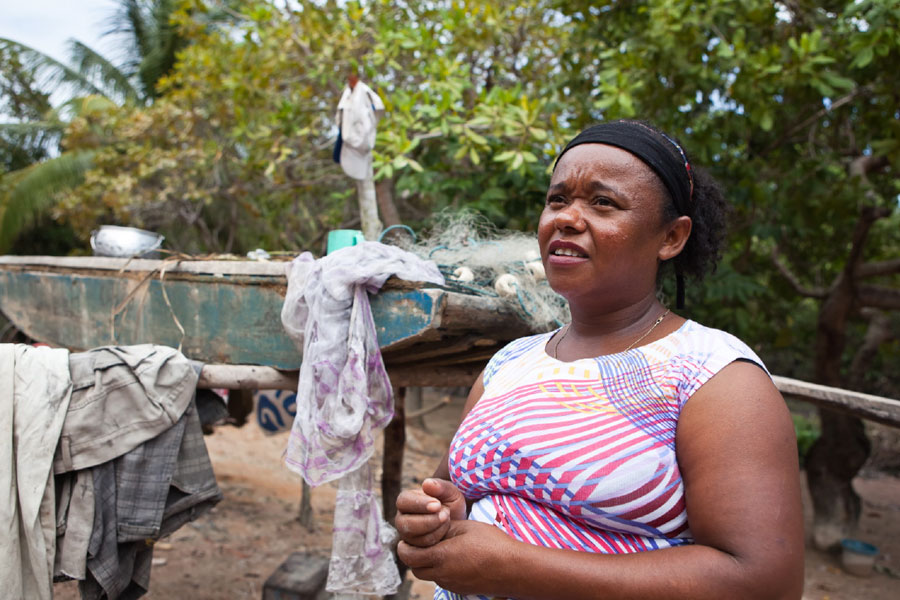
The woman in the photo is Maria Nazareth dos Santos. She is part of the Sirinhaém community, a traditional community in the Northeast of Brazil (Pernambuco State) that lost its territory to a sugarcane plantation. The community’s case was reported in Oxfam Brazil’s “Behind the Brand” campaign. The reality is that Brazil’s northeast will be one of the regions most substantially impacted by climate change, and the conflicts over fertile lands will only intensify. Photo: Tatiana Cardeal
Nicaragua: Rethinking agriculture
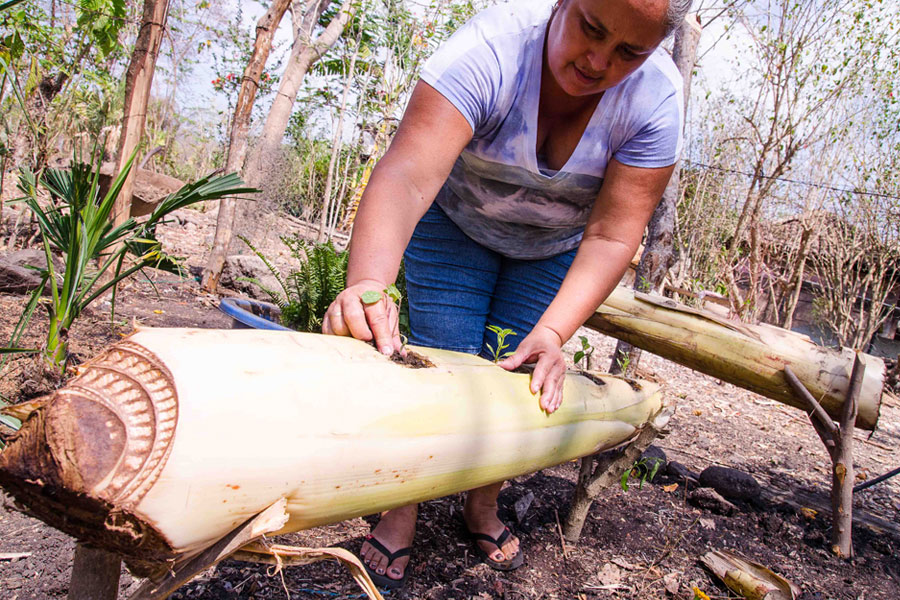
In Nicaragua climate change requires that women rethink ways of farming. Agroecology and patio gardens are two solutions that allow women to ensure the production of healthy food for themselves and their families. Photo: Mathieu Gagnon/Oxfam
Cuba: Women farmers using solar energy
The women in the photographs are farmers who manage irrigation systems using solar energy and shade cultivation, technologies for adaptation to climate.

Justo Bruzón Cooperative in the town of Jesus Menéndez, Las Tunas Province. Photo: Marta Rodrigues/Oxfam
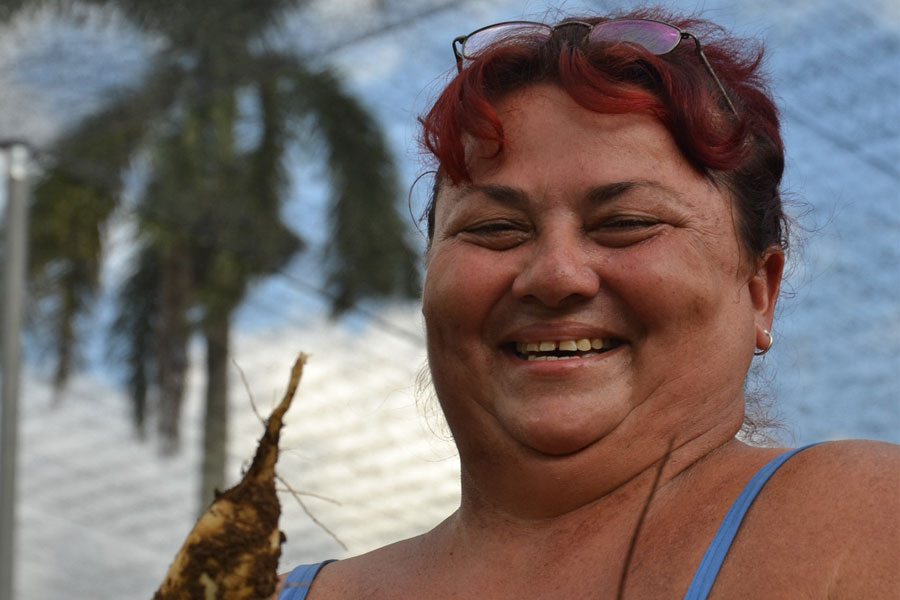
Mártires del Moncada Cooperative, town of Gibara, Holguín Province. Photo: Marta Rodrigues/Oxfam
Bolivia: Delfina Going to the Market
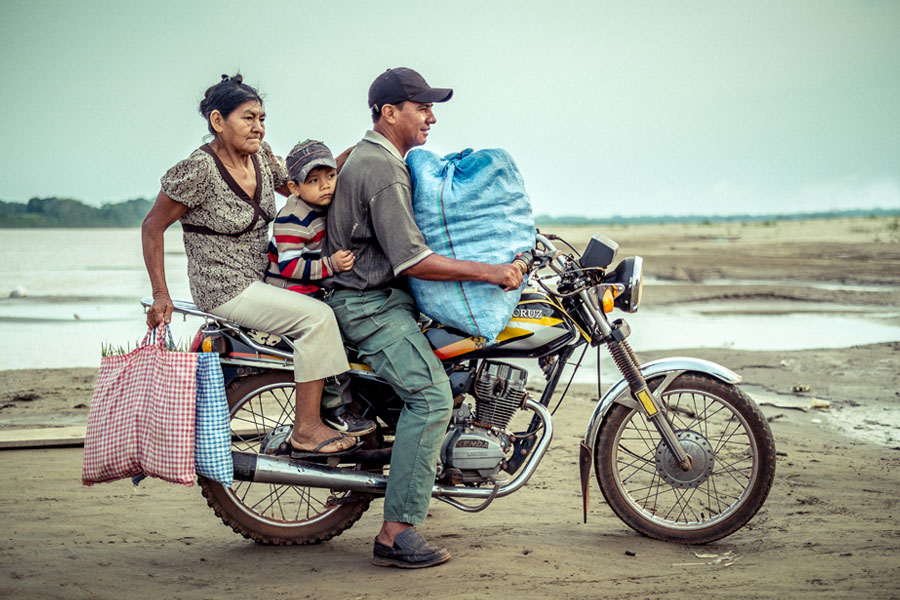
Delfina wakes up early every morning to sell crops at the Riberalta market. Today, there is less produce as a result of prolonged droughts and floods. Every day she leaves her community in Pando with her grandson. She first travels by motorcycle taxi, and then takes a boat to cross the river. Once she arrives in Beni she takes a second motorcycle taxi to teach her destination. Photo: Alexandre Laprise
Mexico: Without crops, without water
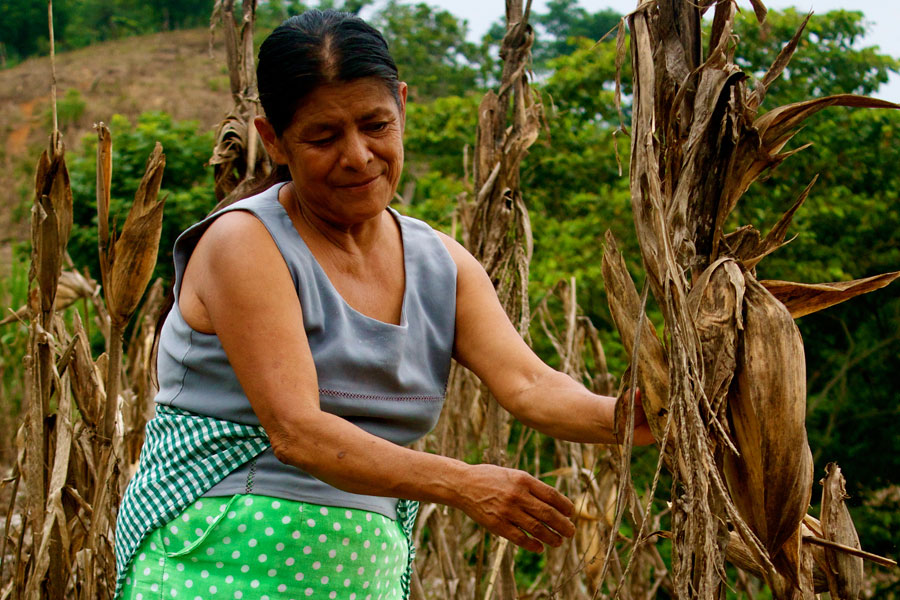
Veracruz, México, Totonacapan Region. The population face serious water supply problems, insufficient for harvesting crops. Photo: Miguel Bracho/Oxfam Mexico
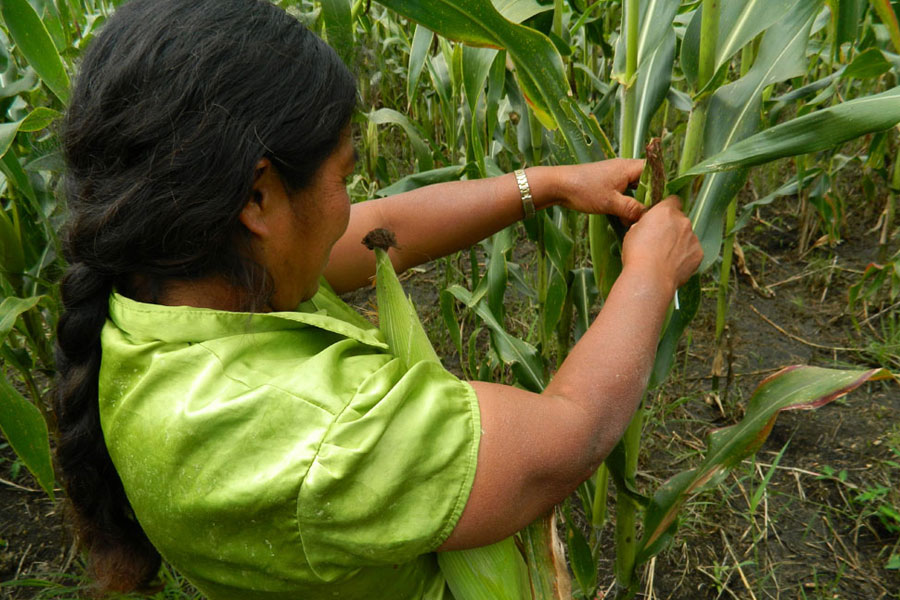
Photo: Miguel Bracho/Oxfam Mexico
El Salvador: Carrying water, carrying life
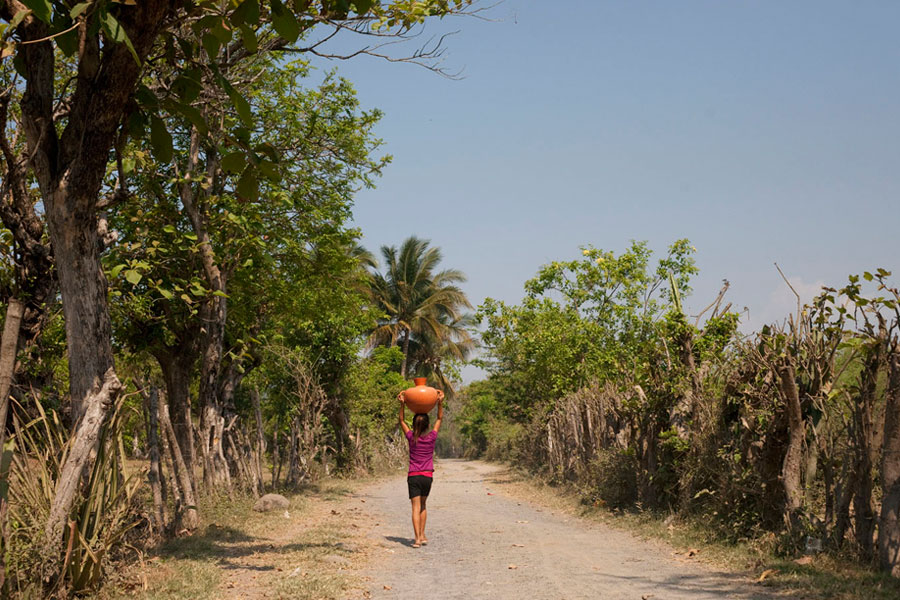
Photo: The Guardian
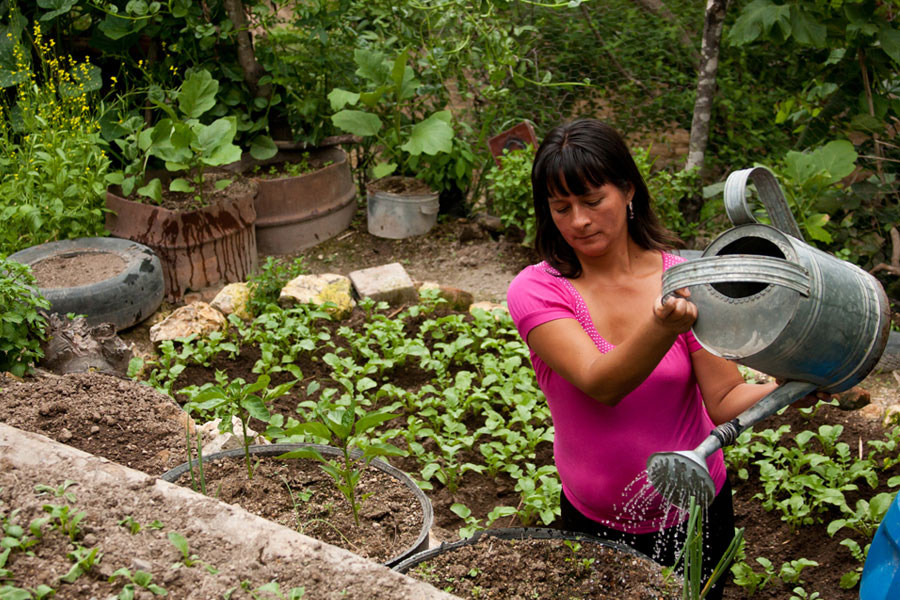
Photo: René Figuero/Creativos
Peru: Mountain potatoes
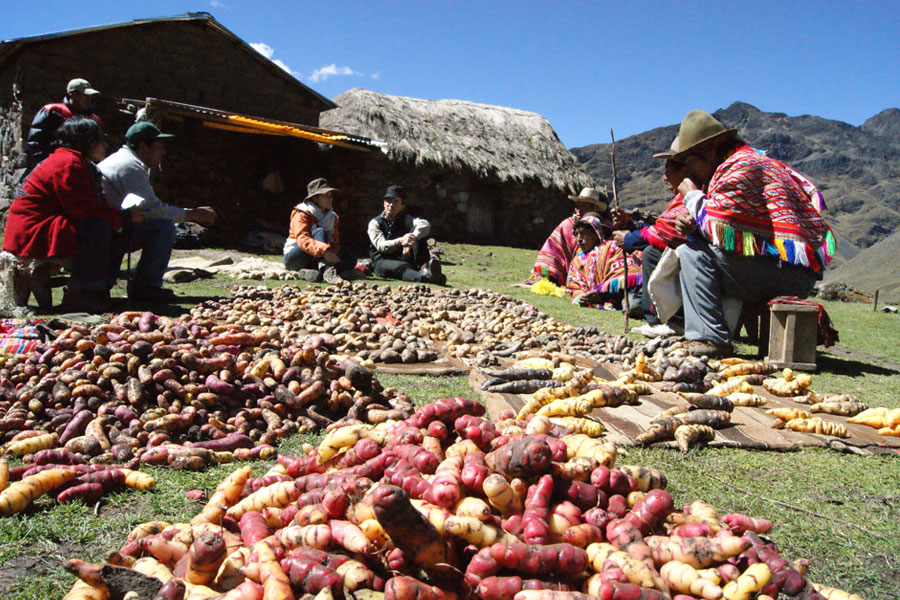
Mountain potatoes, Cusco, Peru. Photo: ANPE Peru
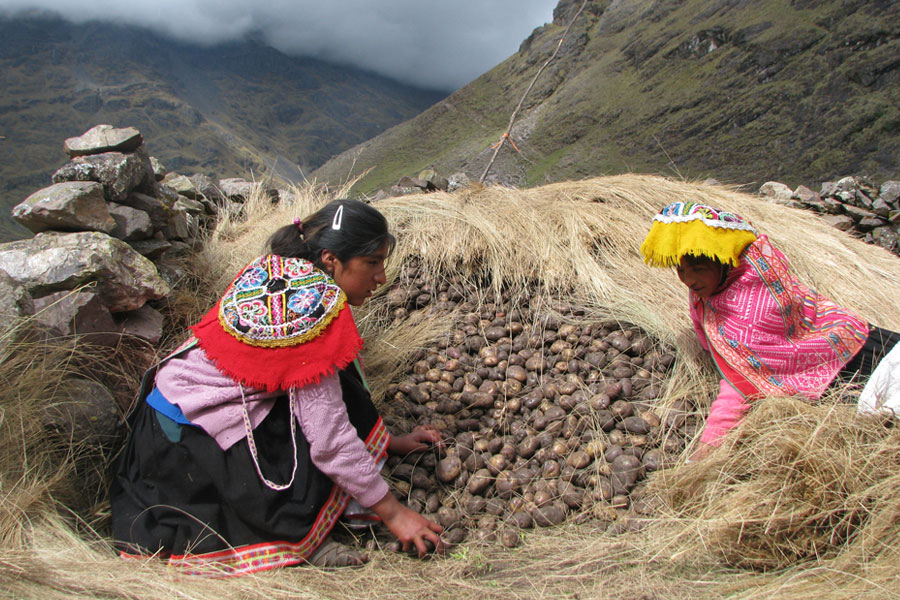
Protecting potatoes from the cold in the mountains, Cusco, Peru. Photo: ANPE Peru